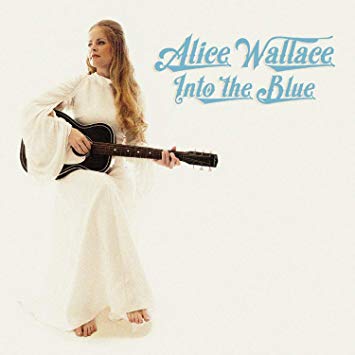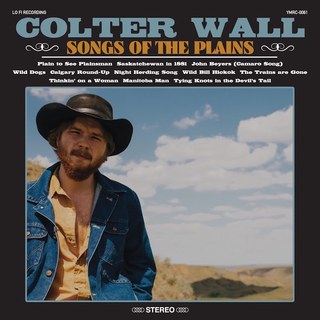Rating: 10/10
For lovers of the folk rock side of Americana, passionate and thought-provoking songwriting, and/or rich, unique vocal quality, meet Jade Bird, a 21-year-old singer-songwriter from the UK who has just released the best album of the year so far. Continuing the excellent trend led by Charles Wesley Godwin and Emily Scott Robinson, Jade Bird has released an incredible debut, showcasing nothing but promise for her future and hopefully introducing many more years of strong output.
Sonically, this album can be a little difficult to pin down. It’s not quite country, for the traditionalists out there, but it fits squarely in Americana and features some acoustic songs and piano ballads that most closely resemble folk, country’s introspective cousin. But it doesn’t fall into the trap of sleepy, introverted Americana either; Jade balances the softer stuff well with edgier rock songs and an angst reminiscent of Alanis Morissette on Jagged Little Pill.
Vocal ability is always welcome in folk and Americana, and Jade Bird delivers this in spades. There’s a little of the aforementioned Morissette in her voice, and perhaps some Amanda Shires, particularly as Shires sounded on her latest incredible record. But Bird’s uniqueness sets her apart from these artists and really from everyone, and she also shows an awareness of her strengths, the care and ability to write songs that best showcase her incredible voice. There’s a little rasp in her voice that only increases as she reaches for higher notes, and she writes to take full advantage of this. It’s almost as if ‘Lottery” were written especially to test the limits of her vocal power, and she passes the test beautifully. Few vocalists can sing a sustained chorus at the very reaches of their range like this, but even fewer can sing the same chorus with measured intensity and yet still keep the same grit, as Jade manages to do on the last, quieter chorus of this song.
Lyrically, this album is fascinating. Most of this focuses on the dual personalities of relationships, the endless cycle between happiness and heartbreak, and the way the two can exist almost simultaneously. “One minute I love you, and the next it’s all in ruins,” she sings on the opener, aptly titled “Ruins.” Bird says she almost named this album after the song “Love Has All Been done Before,” and it would have been perfect because that track sums everything up; it’s the jaded feeling of not even wanting to start a new relationship and be in love because the inevitable end is already in sight. “17,” a beautiful piano ballad that shows Bird restraining her voice to deliver something heartfelt and sad, also takes this approach; she pushes her partner away because she’s afraid he’ll “just get up and leave,” and her heart won’t be able to take it. And “My Motto” sees her literally repeating to herself not to trust and let people in because it can only lead to pain and heartache.
Sometimes this jaded view of love comes out in anger and frustration rather than in hurt. “Uh Huh” and “Good at It” are placed back to back in order to best display this side of heartache. in “Uh Huh,” Bird is telling her ex that his new love is playing him the same way he played her, and her grim satisfaction gives us a glimpse of that Morissette angst. “Good at It” takes the opposite approach, as she’s resentful of the new lover, whom she sarcastically calls a “goddess,” bitterly demanding if this woman is “good at it” because that has to be the reason her ex won’t call her anymore. Bird described this to Apple Music as the feeling that you gave everything to the relationship and the worry that it must be something in the bedroom which is driving him to someone else. That insecurity is taken out in this song as pure anger, and credit again to Bird for writing this in the right key in order for her vocals to be especially intense and outraged.
But it’s not all so jaded and bitter. In fact, two of the album’s strongest moments come when Jade is simply having fun. “Side Effects” is the moment where she gives in for awhile to being in love and feeling free, and the driving guitars really add to this song about running away together. There’s an almost 80’s rock flavor to this which would be great to see Bird exploring more on future projects. The other fun moment is again dripping with angst and sarcasm, but “Going Gone” is very obviously delivered with humor, and you can just tell Jade is having the time of her life singing it. This one is about her drunken boyfriend who talks a lot of shit about himself in the pubs but in the end still lives with his mom and doesn’t own a car. This one has instant replay value. Another impressive note; Jade wrote this song when she was only fourteen years old.
The album closer departs from this theme of love and heartbreak, but perhaps the most impressive song on a record full of impressive songs is “If I Die.” This one features simply a piano and Jade’s vocals, and it’s a song to her mother, to give her strength if Bird should pass away. It’s filled with emotion and perfect for her voice, an outstanding way to end the album.
This is an incredible, fascinating record, and it’s almost unbelievable that it’s her debut full-length album. On a site called Country exclusive, this album probably won’t be for everyone, leaning more to the folk rock-Americana end of the spectrum. But it’s excellently written, with thoughtful songwriting wrapped in accessible hooks and melodies, and delivered with exceptional vocal ability and passion. It’s simply an album for fans of good music. Hopefully, this is just the beginning, and we’ll be talking about Jade Bird for years to come.




